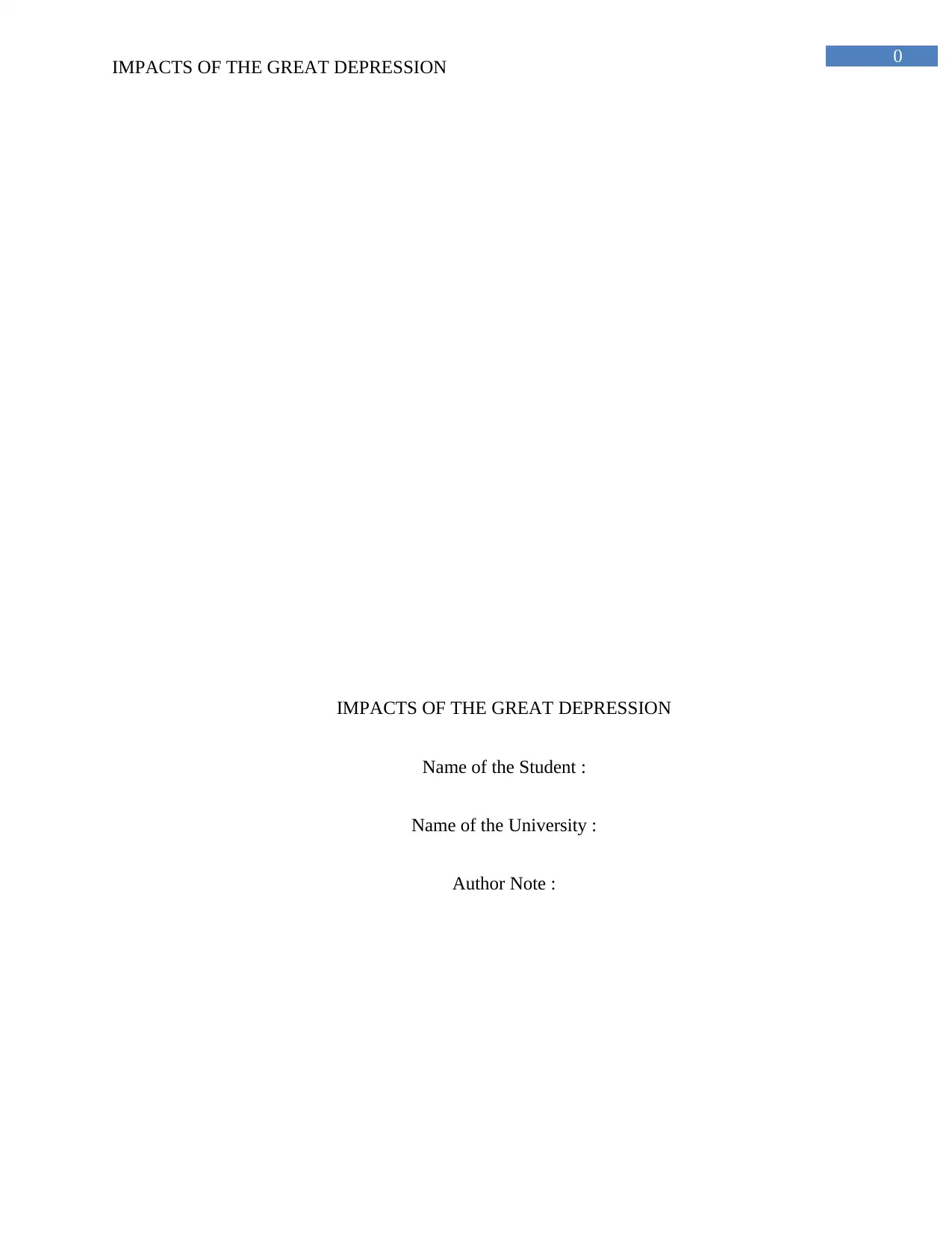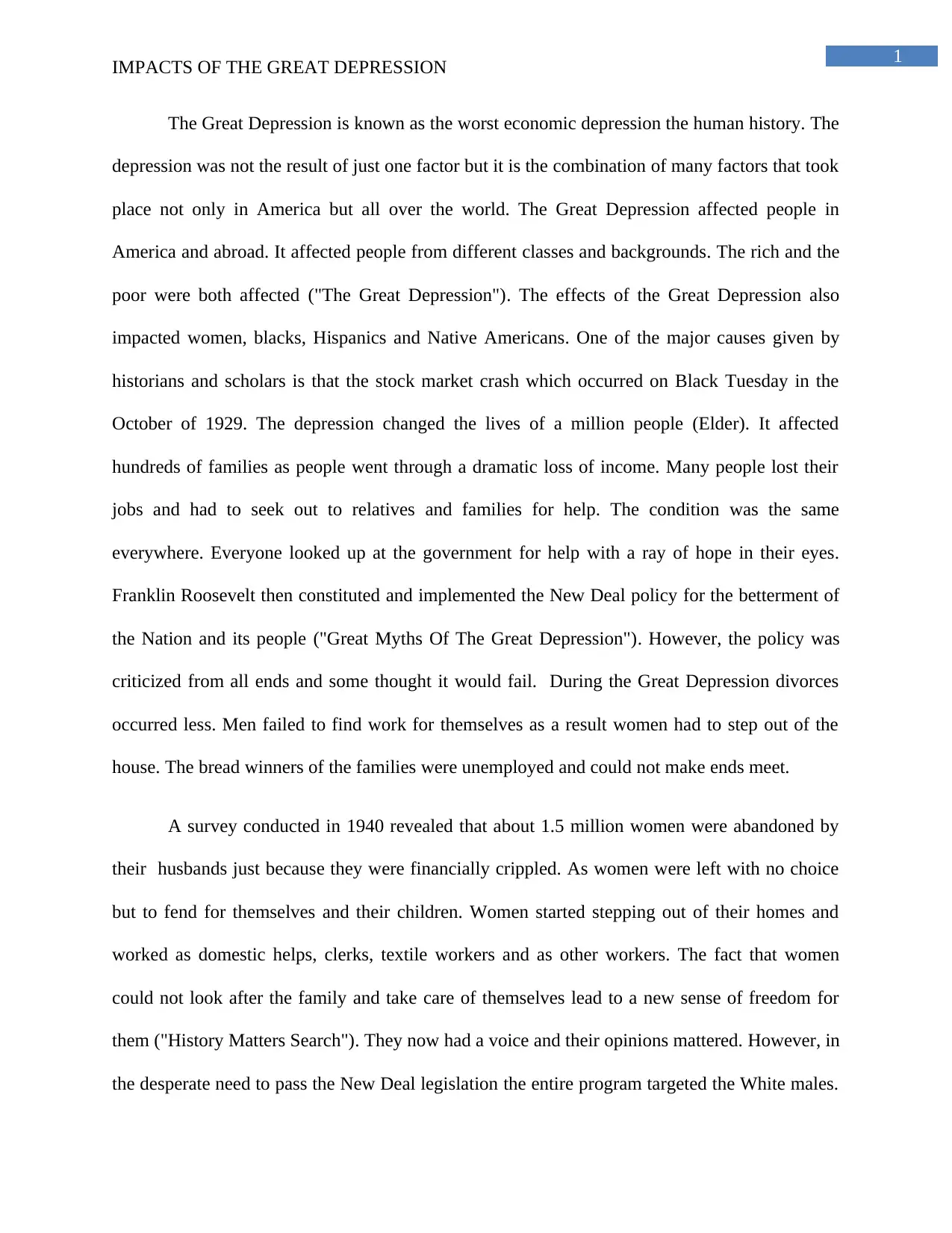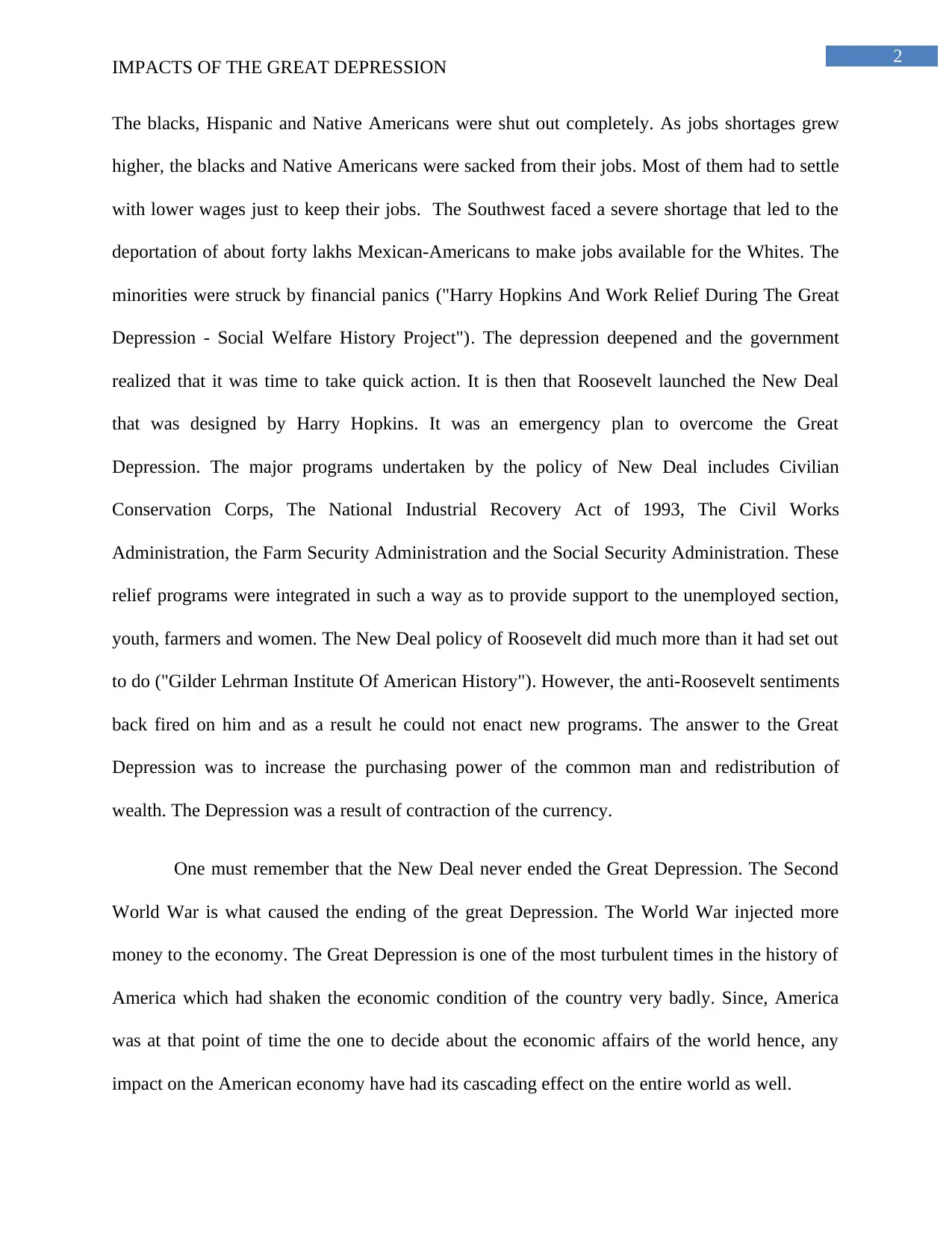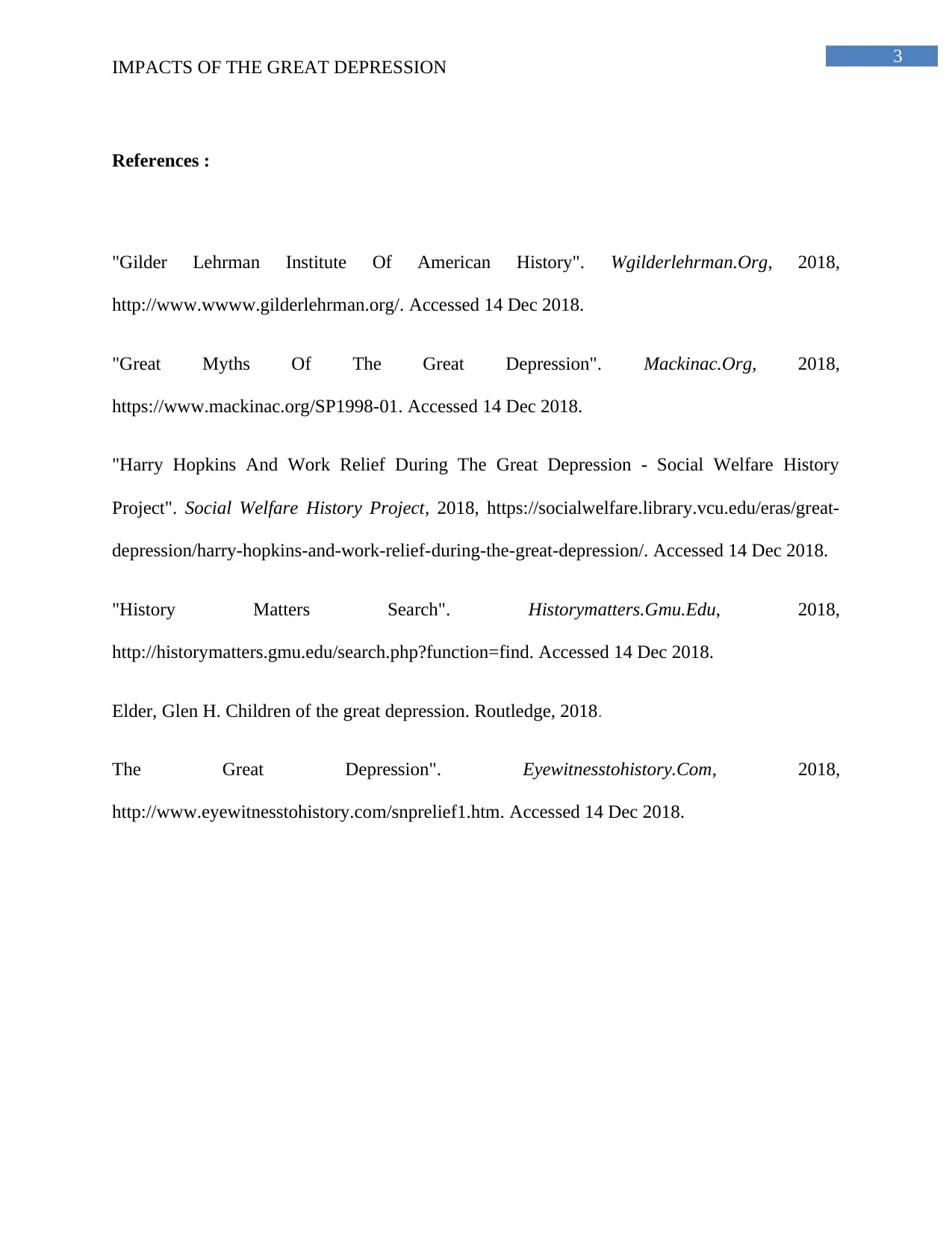Impacts of the Great Depression
VerifiedAdded on 2023/05/26
|4
|960
|466
AI Summary
The Great Depression affected people from different classes and backgrounds. Read about the impacts of the depression on women, blacks, Hispanics and Native Americans. Learn about the New Deal policy implemented by Franklin Roosevelt to overcome the depression.
Contribute Materials
Your contribution can guide someone’s learning journey. Share your
documents today.
1 out of 4
![[object Object]](/_next/static/media/star-bottom.7253800d.svg)









